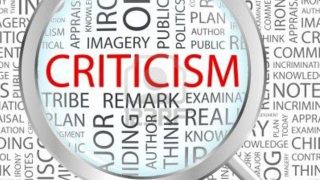
Welcome to the web page of the course Literary criticism! This humble web page is an on-going project I am undertaking as part of my dedicated initiative to transcend the borders of our classroom. This is a manifestation of my firm commitment to the endeavor of lifelong learning. With this online class portal, I hope that we can effect learning on the go, whenever we want and we need and wherever we may be. Please ignore the advertisements embedded because I am subscribed to a free web hosting service. Nevertheless, I enjoin you to join me as we embark on this journey and together, let us explore the colorful world of literary criticism.
“In a very real sense, people who have read good literature have lived more than people who cannot and will not read.” ~ S.I. Hayakawa
Course description
This course is an inquiry into the functions and characteristics of good literature as well as the principles and techniques of criticism. Students will learn to criticize individual works meaningfully. Critiques of selected pieces are presented for discussion.
Course objectives
This course aims to develop student’s ability to understand and to criticize a literary piece. To equip them knowledge of key forms and terminology of literary criticism, to ability to read the writings of literary scholars and critics with understanding and judicious appreciation; to acquire basic theoretical concepts underlying contemporary approaches to literature and the major differences between them; to develop the ability to conduct literary research according to established procedures and use such research effectively and responsibly; to develop with them the ability to write a critical essay that states a clear thesis and supports it persuasively, and to integrate literary research with personal ideas
Course intended learning outcomes (CILOs)
By the time of completion of this course, the students will be able to:
- explain the meaning, elements, and characteristics of literature;
- demonstrate skills in understanding literary piece;
- examine the techniques of early literary criticisms; and
- describe the principles and steps in writing a well-organized literary analysis.
Student outcomes addressed by the course
Thee students will be able to:
- articulate and discuss the latest developments in the specific field of practice;
- use the techniques, skills, and modern technology necessary for the practice of the profession;
- apply knowledge of contemporary issues and principles of ethics relevant to professional practice;
- demonstrate a service orientation in one’s profession;
- function effectively as an individual, and as a member or leader in diverse teams and in multidisciplinary settings;;
- communicate effectively in oral and in written English; and
- recognize the need for, and prepare to engage in lifelong learning.
Course topics
Prelim Period (Weeks 1–6)
I. Orientation: TIP Vision and Mission; TIP Graduate Attributes/ Institutional Intended Learning Outcomes; Program Objectives/ Program Intended Learning Outcomes; Course Objectives/ Course Intended Learning Outcomes; Course Policies.
Introduction to Literature and Literary Terms: What is literature, Literary standards, Literary approaches, Importance of literature, Divisions of Literature, Literary genres. Introduction to Literary Criticism: What is Literary criticism, The nature of criticism, The functions of criticism, Qualities of a good critic, Approaches to Literary Criticism: Formalist Approach, Mimetic Approach, Psychological Approach, Deconstructionist Approach, Feminist Approach, Marxist Approach, Archetypal Approach. Reading as a Literary Critic: Marginal Notation, Reading Log. Writing a Literary Criticism. Formalist Criticism: Araby by James Joyce. Reader-response Criticism: The Gift of the Magi by O. Henry.
Midterm Period (Weeks 7–12)
Psychological Criticism: Oedipus Rex by Sophocles, Marxist Criticism: The Diamond Necklace by Guy de Maupassant, Feminist Criticism: Mrs. Dalloway by Virginia Woolf, Deconstructionist Criticism: The Rhodora by Ralph Waldo Emerson. Archetypal Criticism: Cupid and Psyche by Apuleius.
Final Period (Weeks 13–18)
Historical Criticism: A Rose for Emily by William Faulkner, Biographical Criticism: The Raven by Edgar Allan Poe, Mimetic Criticism: The Lottery by Shirley Jackson, Inter-Textual Criticism: The Cask of Amontillado. Compilation of various literary criticisms.
Literary criticism course references
The references listed herein are available in the library of TIP Quezon City. You are not required to purchase them but you are enjoined to maximize the use of our library since you have paid it already in your miscellaneous fees. You may likewise utilize any available resources which you deem useful and helpful in your desire to enjoy our Literary criticism endeavor!
- Dobie, Ann B. (2009). Theory into Practice: An Intro to Literary Criticism. Australia: Wadsworth Cengage Learning.
- Fry, Paul H. (2013). Theory of Literature. New Haven: Yale University Press.
- Habib, M. R. (2011). A History of Literary Criticism: From Plato to Present. UK: Wiley-Blackwell Publishing.
- https://owl.english.purdue.edu/owl/owlprint/722/
- http://editorskylar.com/litcrit.html